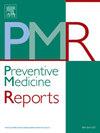Integrating lifestyle behaviors in school education: A proactive approach to preventive medicine
IF 2.4
3区 医学
Q2 PUBLIC, ENVIRONMENTAL & OCCUPATIONAL HEALTH
引用次数: 0
Abstract
Objective
Individual behavior is regarded as the primary factor influencing health. Despite recent advances in health science, the increasing prevalence of both non-communicable diseases and unhealthy lifestyle behaviors needs to be effectively controlled. The objective of this short communication is to explore the theoretical basis for integrating lifestyle habits into school education and highlight its significance for public health policy.
Methods
A conceptual, perspective-driven analysis was conducted, drawing on evidence from existing literature on the role of educational settings in promoting healthy lifestyle behaviors. The study evaluates current physical education (PE) programs and curricula addressing health-related issues while proposing an updated, proactive approach to mitigating existing health concerns.
Results
Schools have significant potential to cultivate healthy lifestyle habits through practical, real-life applications. PE is a primary school-based subject capable of promoting an active lifestyle; however, debates persist regarding its adequacy and effectiveness in other facets of health promotion. From a holistic perspective, it is proposed that PE be evolved into lifestyle education (LE), that aims to integrate all lifestyle factors—beyond physical activity—within the school-based educational framework on a global scale.
Conclusions
Establishing school-based LE appears crucial for addressing the growing pandemic of chronic health conditions from their earliest origins.
将生活方式行为纳入学校教育:预防医学的积极途径
目的:个体行为被认为是影响健康的首要因素。尽管健康科学最近取得了进展,但非传染性疾病和不健康生活方式行为的日益流行需要得到有效控制。本文的目的是探讨将生活习惯融入学校教育的理论基础,并强调其对公共卫生政策的意义。方法利用现有文献中关于教育环境在促进健康生活方式行为中的作用的证据,进行概念性、视角驱动的分析。该研究评估了当前的体育教育(PE)项目和与健康相关的课程,同时提出了一种更新的、积极主动的方法来减轻现有的健康问题。结果通过实际的、现实生活中的应用,学校有很大的潜力培养健康的生活习惯。体育是一门以小学为基础的学科,能够促进积极的生活方式;然而,关于其在促进健康的其他方面的充分性和有效性的争论仍然存在。从整体的角度来看,建议将体育发展为生活方式教育(LE),其目的是在全球范围内整合所有生活方式因素-除了体育活动-在校本教育框架内。结论建立以学校为基础的LE对于从最早的源头解决日益流行的慢性健康问题至关重要。
本文章由计算机程序翻译,如有差异,请以英文原文为准。
求助全文
约1分钟内获得全文
求助全文
来源期刊

Preventive Medicine Reports
Medicine-Public Health, Environmental and Occupational Health
CiteScore
3.90
自引率
0.00%
发文量
353
 求助内容:
求助内容: 应助结果提醒方式:
应助结果提醒方式:


